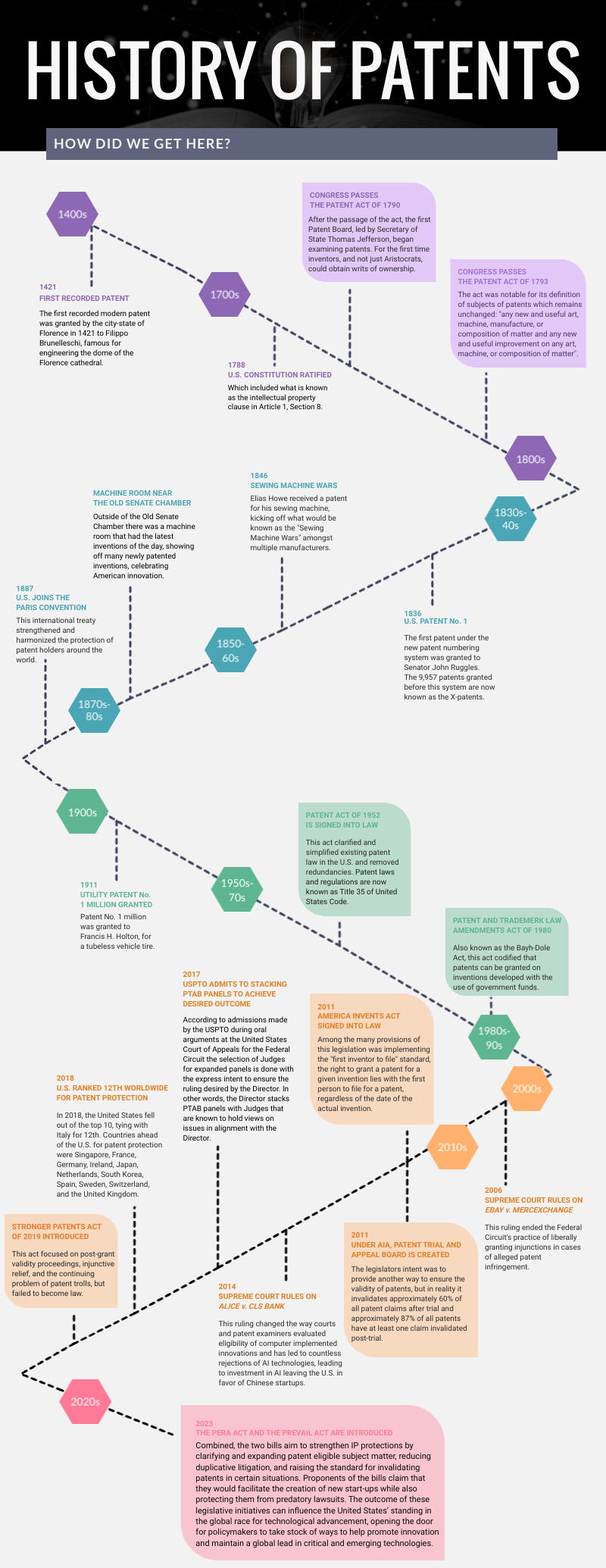How IP Rights Promote Innovation
Intellectual Property (IP) rights are foundational to U.S. innovation, economic competitiveness, and national security. By transforming ideas into valuable economic assets, IP protections incentivize creativity, secure investments, and enable market transactions, with U.S. patents valued at nearly $3 trillion in 2021. These rights are particularly critical for R&D-focused firms in advanced technology sectors like 5G and AI, which rely on secure IP to license innovations and sustain their contributions to complex value chains, ensuring the U.S. maintains its technological edge.
IP rights also empower small businesses and startups, which drive over 40% of U.S. economic activity and two-thirds of new jobs. Strong IP protections allow these smaller actors to attract investment and form partnerships without fear of idea theft by larger firms. Historical weakening of IP rights, such as during the mid-20th century, stifled innovation and favored large corporations, while reforms like the Bayh-Dole Act in the 1980s revitalized the innovation ecosystem by enabling startups to thrive, highlighting the critical role of robust IP rights in fostering a dynamic and competitive economy.

“[The Patent System] added the fuel of interest to the fire of genius in the discovery and production of new and useful things.”
Abraham Lincoln

